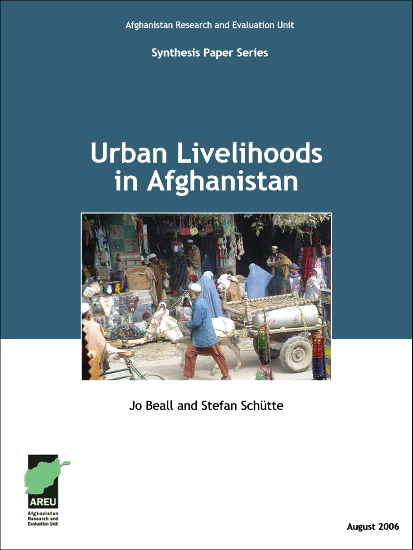
The cities of Afghanistan are growing fast. The pace of this growth exceeds the planning and management capabilities of the already overwhelmed central government and of under-resourced municipalities, making them unable and, at times, unwilling to effectively work on reducing levels of urban poverty and vulnerability. As a result, poor urban households are excluded from the most basic services and are forced to live day-to-day on meagre, unreliable income flows in often health-threatening environments. Against this background of unprecedented and largely unplanned urbanisation in the country, the Afghanistan Research and Evaluation Unit (AREU) carried out research in five Afghan cities to explore the ground realities of urban poverty and vulnerability. By understanding the diverse livelihood strategies poor and vulnerable households pursue, and how and why such strategies change over time, this AREU study hopes to inform policy formulation that builds on the capabilities, needs and priorities of marginalised urban populations.
Links
Resource collections
- Topics
- UN Habitat - Urban Response Collection
- Urban Response - Urban Crisis Preparedness and Risk Reduction
- Urban Response Collection - Community Engagement and Social Cohesion
- Urban Response Collection - Economic Recovery
- Urban Response Collection - Environment and Climate Change
- Urban Response Collection - Housing, Land and Property
- Urban Response Collection - Urban Crisis Response, Recovery and Reconstruction
- Urban Response Collection - Urban Resilience
